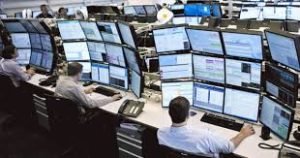All eyes on Finance: How to Become a Forex Trader
In some respects, you could be forgiven for thinking that now was hardly the ideal climate to consider becoming a forex or financial market trader. After all, the value of the pound sterling tumbled to its lowest level in 31 years in the aftermath of the Brexit vote, while share prices also fell amid rising volatility.
The forex market boasts incredible resilience and liquidity, however, particularly since the days of the Great Recession and America’s march toward the fiscal cliff. As a result of this, we have seen the value of the pound stabilise and the British economy rebound, while even the fractured Eurozone has managed to thrive despite the issues caused by Brexit.
How to become a Forex Trader in the current Market
With this in mind, becoming a forex trader may actually be a little more lucrative and appealing than initially meets the eye in the current climate. The key is to develop a viable and structured career path, while also keeping the following points in mind: –
Choose a Short and long-term Career Plan
Trading on the financial market requires a certain amount of determinism, and you must also apply this to the cultivation of a short and long-term career plan. While the forex market and its demands will constantly change over time, for example, you must adhere to a strategic course that will enable you to grow, develop and build towards future attainment.
Arguably the best course is to start as a part-time trader, as you look to access and monetise the market alongside a full-time job. This will help you to maintain a reliable source of income that can fund your growth and development, before you begin to invest more time into operating as a trader and takes steps towards making this your permanent career.
Learn and Hone your Craft
Before beginning to trade even on a part-time basis, it is important to learn the fundamental aspects of the market and undertake an official course of education. This will help you to understand the theory behind the market and the underlying laws that govern change, and it is these lessons that allow you to cultivate a trading strategy and implement this with a clear and focused mind.
The next step is to apply these teachings in a practical setting, as you look to hone your craft without risking your hard earned capital. This is where contemporary, online brokerage platforms such as ETX Capital can come into play, as these outlets offer demo accounts that effectively simulate live market conditions. By leveraging this for a period of between three and six months (or as long as you are comfortable with), you can determine the practical risks of forex trading and place your market knowledge in a suitable context.
Pay Attention to the Technical Details of Trading
Utilising an online brokerage platform to access a demo account has other benefits too, as it also connects you with resources that allow to manage multiple assets within a single portfolio. You can also leverage these platforms to enjoy a huge range of historical and real-time analytical tools, which in turn can inform your individual trades and help you to use automation safely and effectively.
You still need to manage the technical details of trading, as it is this attention to detail that will ultimately make the difference between success and failure. Choosing the most stable currency pairs within your most prolific trading session is crucial, for example, as is your response to the sudden price movements and excess volatility that typifies each 24-huour trading cycle.







